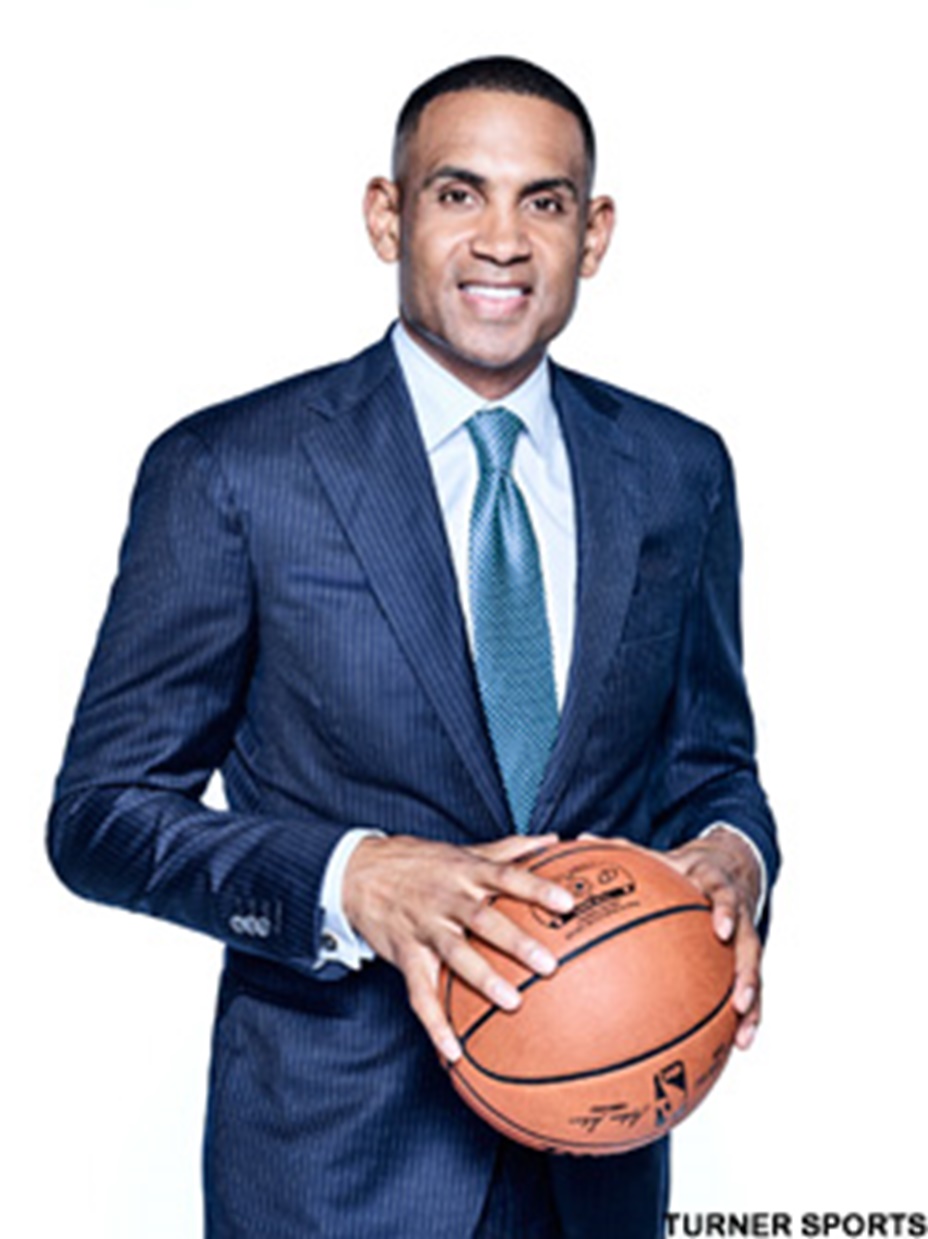Turner Sports analyst Grant Hill has been involved in some of the most iconic moments in NCAA Tournament history both as a player and a broadcaster, and will be on the Final Four call for CBS this weekend. Hill will be alongside Jim Nantz and Bill Raftery for all of the games. Hill said, "It’s a great pleasure to work with these guys and it’s a great responsibility, too." Hill took time to chat with THE DAILY about this year’s matchups, challenges in covering the tourney and his thoughts on Final Four games being played inside football stadiums.
Q: Would you consider this an appealing Final Four given the lack of college basketball’s blue bloods?
Hill: First, it’s important that you have good games. You can never predict that. Last year on Final Four Saturday you had Oklahoma-Villanova and Syracuse-North Carolina, who are the blue bloods, and the games were terrible, they were blowouts. As a broadcaster to me it really comes down to the games. Great games make for an easy call. It’s cool that we get a chance to learn more about these teams that aren’t on the national radar. We get a chance to tell their story.
Q: What do you learn from working alongside Jim Nantz and Bill Raftery?
Hill: We have such a good time -- hopefully that comes across on the call. They have been helpful to me as I am learning and growing as a broadcaster. It can be intimidating though because you have Jim Nantz, who is like the voice of the Final Four and such an iconic figure, and then you have Bill Raftery, who has been doing this for a long long time. That is really a credit to them and their personality and their character. They make it easy for me and make me feel like I am just as deserving to be there with them.
Q: What are some of the challenges in covering the NCAA Tournament?
Hill: It’s like preparing for an exam, like finals in college. You might be following college basketball somewhat during the season but you’re not living it every day so you have to really catch up and get to know a lot of teams. But it’s fun, it’s basketball. I can relate as a former player to what they’re experiencing and feeling and it reminds you of what you went through as a player.
Q: How much does being a former player help you in broadcasting?
Hill: It gives you perspective and experience. Your responsibility as a broadcaster is a subjective one. You can say one thing and someone else might not like it. You try to explain what’s happening on the court. Maybe use your own experiences to sort of give the viewer and listener at home an idea of what is happening and going through the mind of these players. You want to have fun and you want to have humor. You want to coach the game up. There’s a lot of different things that you try to accomplish on the call and having played it, having watched it as a fan and having been in the NBA, all of those things within a collective experience only help one’s ability to call the game and do the game its justice.
Q: What are the similarities in calling close games like UNC-Kentucky on Sunday and playing in them like Duke-Kentucky in ’92 with “The Shot”?
Hill: One of the similarities as a player and even as a broadcaster -- you try to get lost in the game. You can naturally do it as a player because you’re competing and you’re not thinking "Oh my god I’m in this arena with 20,000 people, how am I going to make this free throw?" You’re not thinking like that, you’re competing and you’re lost in the game. The same thing applies as a broadcaster, you get lost in the game. There are some certain technical things you have to do as a broadcaster but you’re still lost in the moment. When you have a blowout, you have to keep the game interesting. You tell stories and talk about maybe big picture and what else is happening in the tournament to try and keep the viewer engaged. That’s more of a challenge.
Q: Should the Final Four move back to basketball arenas? Does it make a different as an announcer?
Hill: I don’t mind being in football stadiums. When you have some of those great camera shots with the fans and how large it is it speaks to the magnitude of the situation. I’ve had family and friends go and sit in the upper row and have had a blast. It’s a surreal experience that exists in college basketball. I love the fact that you’re on this stage in front of 50,000 people playing for it all.




